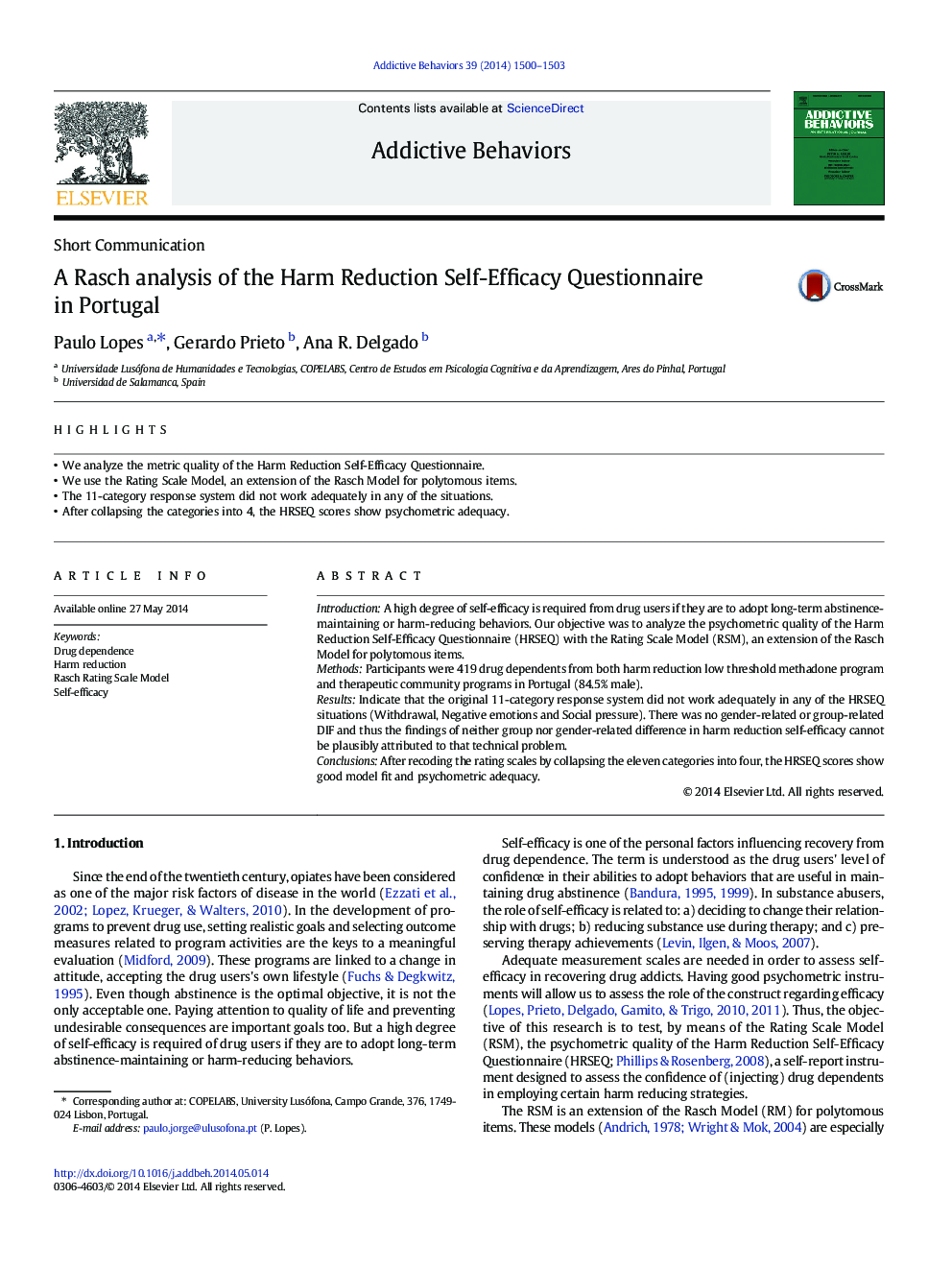| کد مقاله | کد نشریه | سال انتشار | مقاله انگلیسی | نسخه تمام متن |
|---|---|---|---|---|
| 898940 | 915350 | 2014 | 4 صفحه PDF | دانلود رایگان |
• We analyze the metric quality of the Harm Reduction Self-Efficacy Questionnaire.
• We use the Rating Scale Model, an extension of the Rasch Model for polytomous items.
• The 11-category response system did not work adequately in any of the situations.
• After collapsing the categories into 4, the HRSEQ scores show psychometric adequacy.
IntroductionA high degree of self-efficacy is required from drug users if they are to adopt long-term abstinence-maintaining or harm-reducing behaviors. Our objective was to analyze the psychometric quality of the Harm Reduction Self-Efficacy Questionnaire (HRSEQ) with the Rating Scale Model (RSM), an extension of the Rasch Model for polytomous items.MethodsParticipants were 419 drug dependents from both harm reduction low threshold methadone program and therapeutic community programs in Portugal (84.5% male).ResultsIndicate that the original 11-category response system did not work adequately in any of the HRSEQ situations (Withdrawal, Negative emotions and Social pressure). There was no gender-related or group-related DIF and thus the findings of neither group nor gender-related difference in harm reduction self-efficacy cannot be plausibly attributed to that technical problem.ConclusionsAfter recoding the rating scales by collapsing the eleven categories into four, the HRSEQ scores show good model fit and psychometric adequacy.
Journal: Addictive Behaviors - Volume 39, Issue 10, October 2014, Pages 1500–1503
